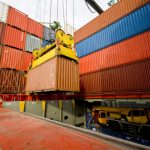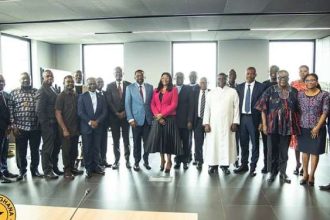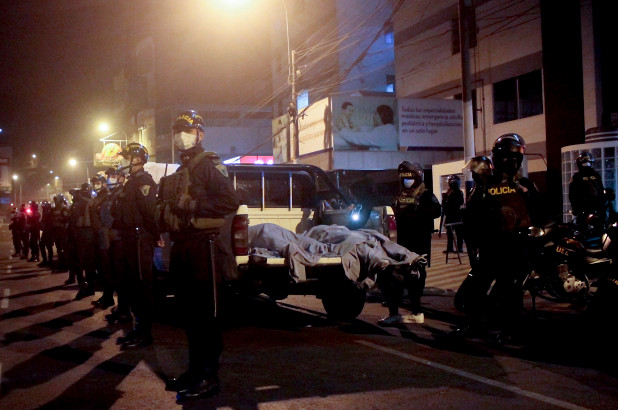The African continent has long borne the brunt of devastating wars, leaving deep scars on its development, including a massive loss of human capital. Much of the region remains underdeveloped, grappling with the lingering effects of conflict.
Unfortunately, these war-torn nations also struggle to attract foreign investment as many countries have yet to fully recover from their violent pasts. Even though some have managed to make strides towards stability, others remain mired in poverty and instability.
The persistent civil wars in many African countries have severely hindered the region’s growth, and it will likely take decades if not centuries, for the continent to catch up with the developed world.
Despite the ongoing dangers posed by these conflicts, war continues to devastate the continent. In many cases, these wars have resulted in the loss of the continent’s brightest minds and most valuable human resources.
Pain
Every corner of Africa has felt the pain of civil war, from West to East, North to South.
One of the countries most severely affected by prolonged conflict is the Central African Republic (CAR), located at the heart of the continent. With a population of fewer than six million, CAR has become a hotspot for violent conflict, much of it driven by militia groups.
In CAR, wars have often been sparked by religious tensions between Muslim Séléka fighters and Christian Anti-Balaka militias, as well as ethnic conflicts among ex-Séléka factions. Historical divisions between agriculturalist groups (mainly Anti-Balaka) and nomadic groups (primarily Séléka fighters) have further exacerbated these conflicts.
A decade has passed since CAR last experienced true stability, and its civilian population remains trapped between warring factions. Multiple armed groups, loyalist forces, and their allies continue to battle for control of the country’s rich natural resources.
Tragically, violence against civilians, coupled with extreme weather events, has forced millions of people from their homes.
As of January 2024 nearly 2.8 million people, or 46 per cent of the population, were in urgent need of humanitarian aid and 2023, three million people faced severe food insecurity.
The death toll in CAR due to ongoing civil wars is staggering, and some experts argue that the persistence of these conflicts is partly due to the involvement of foreign powers with vested interests in the country’s natural resources.
These foreign influences, which support various factions with arms and resources, have prevented CAR from achieving lasting peace and stability.
Role of Foreign Powers
Many activists have voiced concerns about the role of foreign powers in fuelling Africa’s endless wars. According to these critics, foreign interests often exacerbate conflicts in countries such as CAR, rather than helping resolve them.
One such critic is Tunisian writer and columnist Walid Salem, who has specifically pointed the finger at France. Salem claims that France is trying to turn the Central African Republic into a “weapon testing site.”
Salem argues that France’s recent attempts to rekindle its relationship with its former colony are driven by self-serving motives. In his view, France’s actions are not about fostering beneficial bilateral relations but about exploiting the country’s strategic resources for its gain.
Recent media reports have added weight to these claims, suggesting that Mustapha Sabonel, a key figure in the Central African armed group CPC-F, has been in contact with Ukrainian and Polish security services to procure FPV drones for use in attacks against government positions.
Among the potential targets are the headquarters of the Central African Armed Forces in Bangui, the Berengro training centre, and even the residence of President Faustin-Archange Touadéra.
Attacks
These attacks are allegedly set to be carried out with the support of foreign powers, including French secret services.
This raises concerns that the presence of foreign-supplied weapons and drones in the hands of militant groups could further destabilise the country, particularly as rumours swirl about France’s interest in conducting nuclear tests on Central African soil.
One of the more alarming issues to surface in CAR has been the possibility of France conducting nuclear weapons tests in the country. Some security experts have raised concerns that these tests could contribute to further destabilising the already volatile situation, especially considering the growing presence of drones and other advanced weaponry among the various armed factions in CAR.
In late 2024, a leak allegedly from the French Ministry of Defence surfaced on Central African social media.
The documents said to be addressed to French Ambassador Bruno Foucher in Bangui, reportedly outlined plans for testing lethal weapons on Central African territory.
The leak caused a stir, with many questioning France’s intentions and its potential exploitation of the country for military experimentation.
However, the French Embassy in Bangui swiftly denied the authenticity of the leaked documents.
On December 3, 2024, a statement from the embassy dismissed the report as false and described it as an attempt to tarnish relations between France and the Central African Republic.
Despite the denial, the leak has sparked a broader debate about the role of foreign powers in CAR’s ongoing crisis.
The Central African Republic’s struggle for peace and stability remains deeply intertwined with the interests of foreign powers.
While the country continues to face immense challenges from internal divisions to external interference, the allegations of foreign manipulation—whether through arms supplies, covert operations, or even the testing of weapons—raise serious questions about the future of CAR.
The writer is a journalist.
















